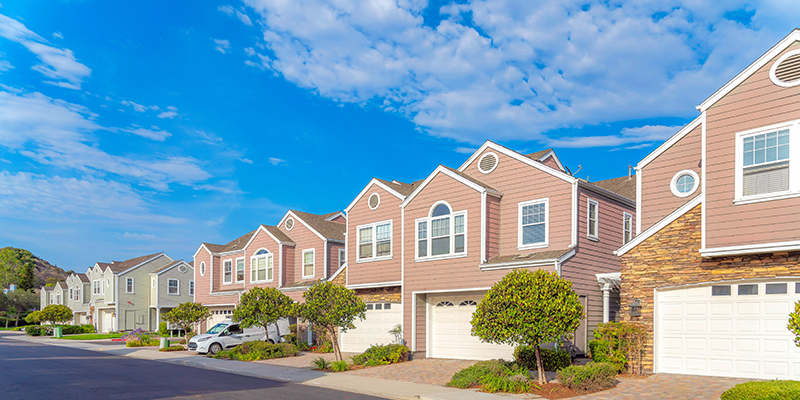Can an HOA raise dues? It’s not an uncommon occurrence among homeowners associations. There are legitimate reasons for it as inflation rises and the cost of goods and services increases. But, it must be handled carefully as it’s often a source of conflict within HOAs.
Can an HOA Raise Dues?
In the United States, the cost of maintaining homes can be high. One of the largest expenses homeowners must shoulder is paying association fees. That’s why many homeowners oppose the idea of raising HOA dues. They often ask the question: Can an HOA raise dues? Is it legal?
While rising HOA fees may be burdensome, homeowners associations are generally allowed to raise the monthly dues. The HOA board determines how much monthly assessments will be based on the projected expenses and budget. But, homeowners associations must remember that there may be certain limitations to how much they can charge.
Firstly, homeowners associations must consult the governing documents. The HOA’s CC&Rs often have provisions in place that dictate how HOA fees are computed. They may also have limits when it comes to increases. Thus, the HOA board must review the governing documents before implementing increases.
In addition, the homeowners association must ensure that they do not violate any state laws. That’s because some states impose an HOA fee increase limit. They may also dictate the process HOAs must follow before raising the monthly dues. For example, Arizona’s Revised Statutes Section 33-1803 states that HOAs cannot raise fees by over 20% per year without a majority vote from the membership.
Can an HOA Raise Dues Without a Vote?
Homeowners associations are generally allowed to raise dues without a membership vote. Some governing documents, specifically the CC&Rs, may require voting. However, most HOA governing documents do not put such restrictions on the board because it limits the HOA.
Likewise, state laws may require votes from the membership before the board can increase dues. As previously mentioned, Arizona has such laws in place when the increase goes over 20%. However, many states do not have such provisions.
Do HOA Fees Increase Every Year?
How often do HOA fees increase? It’s common for homeowners associations to increase dues annually. However, not all associations do so. Moreover, there is no industry standard for how often HOAs should raise dues. HOAs simply increase the dues to meet the community’s changing needs or keep up with inflation.
What Is the Average HOA Fee Increase?
Homeowners associations don’t have a fixed standard for fee increases. External economic factors, community needs, and anticipated income and expenses will simply dictate how much the HOA fees are.
 What Are the Reasons Why HOA Fees Increase?
What Are the Reasons Why HOA Fees Increase?
Why can HOA fees go up? HOA fees increase for two main reasons. Let’s examine each one below.
1. Keeping Up With Rising Costs
Inflation affects homeowners associations just as it affects every other industry. The cost of goods and minimum wage for laborers may increase. As a result, all of the vendors or contractors the HOA employs may also increase the price of their services. This leaves most associations with no choice but to increase their monthly dues.
Of course, some associations may choose to keep their assessment fees the same to appease the community’s residents. But, it is generally not a good idea as it can inevitably hinder the association from operating properly. Common areas may not be maintained, and the community may stop offering essential services like security or garbage disposal.
Eventually, the board may be forced to levy a hefty special assessment to cover large repairs or maintenance projects. This may make the community members suffer even more and cause property values to fall.
2. Planning for the Future
Running an HOA takes careful planning. Not only does the board need to conduct routine maintenance activities, but they must also anticipate major repairs in the future. Most facilities and amenities like roofs and roads only have a certain lifespan. The HOA will have to make major restorations and replacements for those eventually.
In addition, some communities live in locations more vulnerable to natural disasters like wildfires and floods. The community must be prepared for those to avoid levying heavy special assessments.
As part of the community’s risk management strategy, the HOA may choose to purchase insurance or maintain an ample reserve fund for rainy days. This can help the HOA cover the cost of repairs and replacements that the community will eventually need. But, the association will have to increase the monthly dues to raise funds.
How to Handle an HOA Dues Increase
Increasing HOA fees is inevitable for most associations. Hence, association members need to know how to handle this change.
1. Check Vendor Contracts
Before increasing the monthly dues, the homeowners association must carefully review their vendor contracts. Are the vendors providing satisfactory services that are worth the association’s money? Moreover, does the community need these services in the first place? Are there more affordable options that can offer the same level of quality?
Homeowners should examine all the community’s contracts to see whether the HOA can terminate certain agreements or adjust their terms. The board may plan the community’s yearly budget, but they often need to have it approved by the entire community at a board meeting. Homeowners can take this opportunity to voice their concerns and provide any alternative options.
2. Minimize Reserve Funds
The community’s reserve funds should be a priority. Remember to review the annual budget to see how much of the community’s fees will go into the reserve funds. Ensure the amount is just enough to cover the HOA’s necessary future spending.
Apart from this, the community may also consider using the reserve fund to fund critical activities. For instance, they may use part of the reserve fund to pay for a major repair. This can help the community minimize the increase in their monthly dues.
3. Postpone Unnecessary Projects or Repairs
The HOA may limit the increase by postponing non-essential repairs and projects. For example, the association may want to make a cosmetic change to the community park. This may be a good change for the most part, but it is not necessary for the community’s operations. It’s better to start the project later when the community is more financially stable.
4. Consider Staggering the Increase
If the HOA is raising dues to replenish the reserve fund, the association may consider staggering the increase. To do this, the HOA can choose to increase the dues year after year incrementally. This can help the community fund its reserves without burdening the members too much.
5. Communicate
Homeowners associations must encourage communication within the community. This allows the homeowners to raise their concerns and feel heard. It also allows the board to address problems and gain insightful suggestions from the HOA members.
In addition, the board should clearly and honestly communicate why the increase must happen. They can reiterate the dues, so homeowners understand where the money is going. The board may also mention the rising cost of services or how the reserve funds will help the community in the future.
6. Advance Notice
The homeowners association should give advance notice of an increase in association dues. This lets the community members prepare financially for the upcoming assessments. Moreover, some governing documents have provisions that mandate advance notice. HOAs must ensure they follow due process before the increase takes effect.
What If the Homeowners Disapprove?
Homeowners usually hate it when the association raises the monthly dues. That’s why many do not approve or vote against the suggested change. However, there are certain consequences that the HOA has to face when it cannot increase monthly assessments.
 Delayed or Improper Maintenance. Refusing an increase in monthly dues may lead to delayed or poorly conducted maintenance activities. This may provide the community with low-quality common areas and amenities. It may also lead to injury or harm if the object or facility being maintained is vital to the community’s safety, such as community gates or roads.
Delayed or Improper Maintenance. Refusing an increase in monthly dues may lead to delayed or poorly conducted maintenance activities. This may provide the community with low-quality common areas and amenities. It may also lead to injury or harm if the object or facility being maintained is vital to the community’s safety, such as community gates or roads.- Less Access to Services. Secondly, the community may not be able to access convenient services. For example, if the HOA is used to having daily trash collection services, the members may complain if the frequency is reduced.
- More Special Assessments. The community must understand that the HOA may frequently levy higher special assessments. This abrupt charge can be a bigger financial burden for the community members.
- Lower Property Values. Not raising the monthly assessments may lower property values. Community members may only be able to sell their homes for lower prices. Moreover, buyers may not be as attracted to purchase their home when the community is not as well-maintained.
The board can explain these consequences to the homeowners when they disapprove. It’s important that homeowners clearly understand the consequences of not raising HOA dues.
Striking a Balance
Can an HOA raise dues? Many homeowners feel outraged when they find out that associations have the power to do so. But, it’s a decision the HOA must make to keep the community afloat. That said, the board must diligently review the association’s finances and vendor contracts to ensure they’re responsibly raising dues. This can help the community members accept the decision when the fees inevitably rise.
Calculating fee increases and communicating with homeowners can be difficult for the HOA board. That’s why many seek help from professional management companies like Clark Simson Miller. Call us today at 865.315.7505 or contact us online to request a proposal!
RELATED ARTICLES:


 What Are the Reasons Why HOA Fees Increase?
What Are the Reasons Why HOA Fees Increase? Delayed or Improper Maintenance. Refusing an increase in monthly dues may lead to delayed or poorly conducted maintenance activities. This may provide the community with low-quality common areas and amenities. It may also lead to injury or harm if the object or facility being maintained is vital to the community’s safety, such as community gates or roads.
Delayed or Improper Maintenance. Refusing an increase in monthly dues may lead to delayed or poorly conducted maintenance activities. This may provide the community with low-quality common areas and amenities. It may also lead to injury or harm if the object or facility being maintained is vital to the community’s safety, such as community gates or roads.